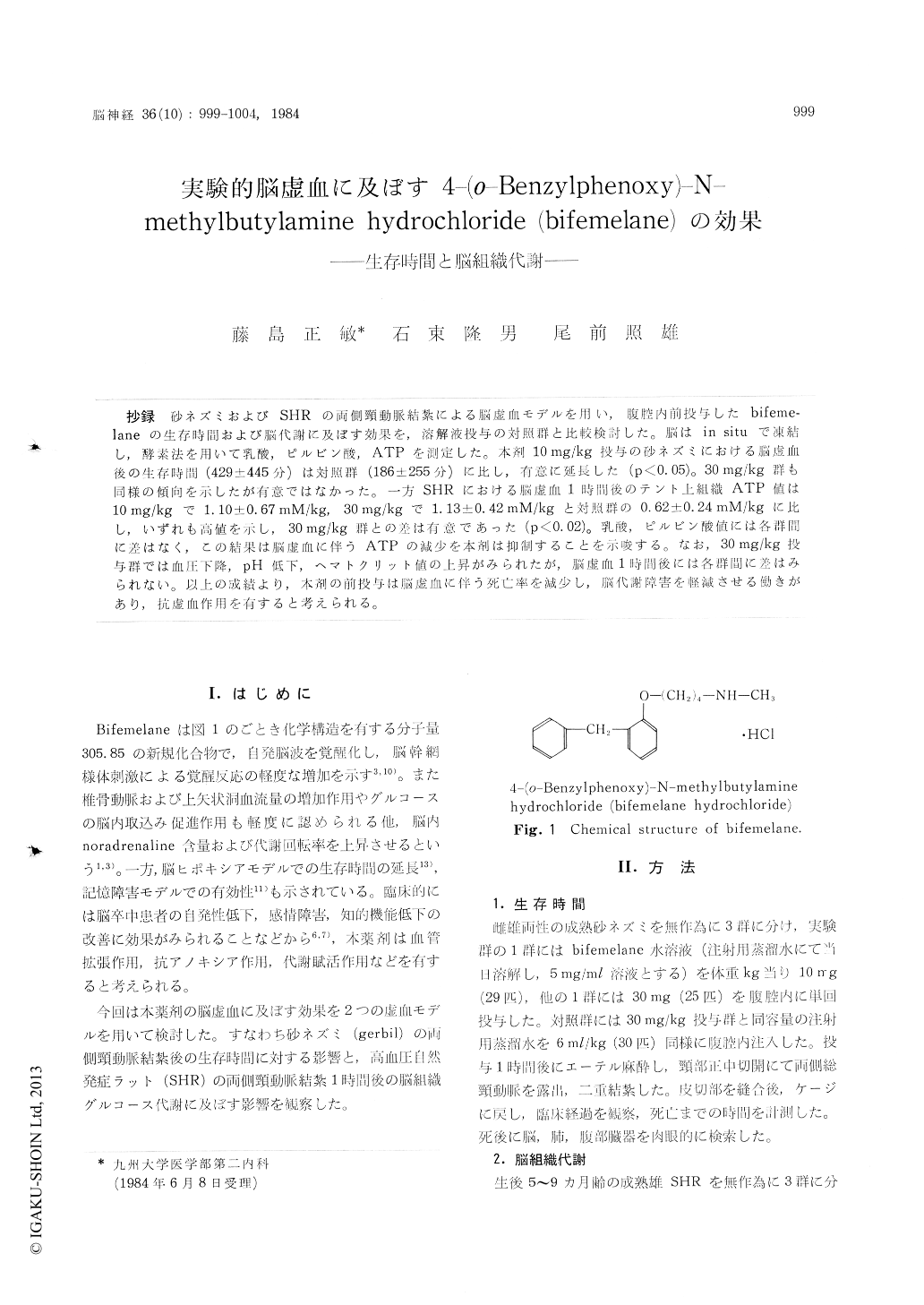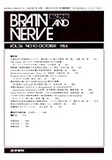Japanese
English
- 有料閲覧
- Abstract 文献概要
- 1ページ目 Look Inside
抄録 砂ネズミおよびSHRの両側頸動脈結紮による脳虚血モデルを用い,腹腔内前投与したbifeme—laneの生存時間および脳代謝に及ぼす効果を,溶解液投与の対照群と比較検討した。脳はin situで凍結し,酵素法を用いて乳酸,ピルビン酸,ATPを測定した。本剤10mg/kg投与の砂ネズミにおける脳虚血後の生存時間(429±445分)は対照群(186±255分)に比し,有意に延長した(p<0.05)。30 mg/kg群も同様の傾向を示したが有意ではなかった。一方SHRにおける脳虚血 1時間後のテント上組織ATP値は10mg/kgで1.10±0.67 mm/kg,3mg/kgで1.13±0.42 mm/kgと対照群の0.62±O.24 mm/kgに比し,いずれも高値を示し,30mg/kg群との差は用意であった(p<0.02)。乳酸,ピルビン酸値には各群間に差はなく,この結果は脳虚血に伴うATPの滅少を本剤は抑制することを示唆する。なお,30mg/kg投与群では血圧下降,pH低下,ヘマトクリット値の上昇がみられたが,脳虚血1時間後には各群間に差はみられない。以上の成績より,本剤の前投与は脳虚血に伴う死亡率を減少し,脳代謝障害を軽減させる働きがあり,抗虚血作用を有すると考えられる。
Effects of new antihypoxic agent (bifemelane) on survival and brain metabolism were studied inacute cerebral ischemia induced by bilateral caro-tid artery ligation in mongolian gerbils and SHR. Either 10mg/kg or 30mg/kg body weight of bife-melane solved in stilled water was intraperito-neally administered 1 hr in gerbils and 1.5 hrs in SHR prior to carotid ligation, and same amount of vehicle was also given in similar manner for control animals. Brain tissue metabolites such as lactate, pyruvate and ATP were determined by using the enzymatic technique in the ischemic brain frozen in situ 1 hr after carotid ligations in SHR.
Mean survival times following carotid ligations were 186±255 min (±SD) in control gerbils, 429±455 min in those with 10mg/kg of bifeme-lane, and 310±429 min in those with 30 mg/kg respectively, its difference between control and 10mg/kg group being significant (P <0.05). Sup-ratentorial lactate concentrations in the ischemic brains of SHR were substantially the same among the groups, whereas ATP levels were 0.62±0.24 mM/kg in control animals, 1.10±0.67mM/kg in rats with 10 mg/kg of the drug, and 1.13±0.42 mM/kg in those with 30mg/kg, respectively. In animals with a high dose pretreatment, the reduc-tion of ATP was significantly smaller than that in control (P <0. 02), indicating that this agent prevents a decline of high energy phosphate in the ischemic brain although anaerobic metabolites in-crease similarly in animals of all experiment groups.
The present results suggest that bifemelane may have antiischemic effect on acutely-induced cereb-ral ischemia, and its effect is likely due to meta-bolism-stimulating rather than vasodilating action.

Copyright © 1984, Igaku-Shoin Ltd. All rights reserved.


